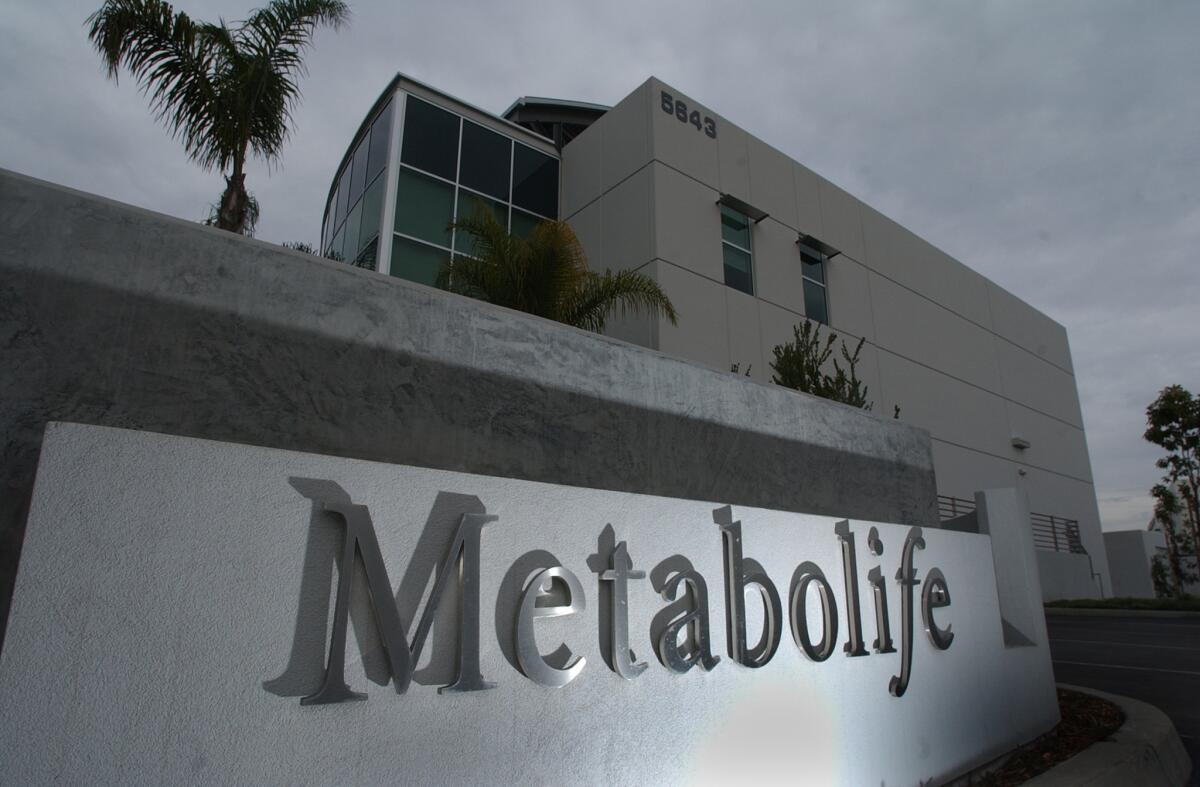Dietary supplements: The deadly toll of deregulation

Here’s the bad news: A dietary supplement named OxyElite Pro is still apparently making people sick, more than a year after the Hawaii Department of Health was alerted to seven cases of acute hepatitis and liver failure among its users. As of last February, the Centers for Disease Control and Prevention had linked 47 hospitalizations, three liver transplants and one death to the diet product.
Here’s the worse news: This toll hasn’t inspired Congress to revisit what is perhaps its deadliest deregulatory initiative ever: the Dietary Supplement Health and Education Act of 1994, or DSHEA. As Pieter Cohen of Harvard Medical School put it in a recent piece for the New England Journal of Medicine, this misbegotten law essentially requires the Food and Drug Administration to assume that dietary supplements are safe until proved otherwise, at which point it’s often too late. OxyElite Pro has been recalled, but as Cohen observes, nothing will prevent another supplement from bringing about a similar toll.
DSHEA was the work product of Sens. Orrin Hatch (R-Utah) and Tom Harkin (D-Iowa) -- “demonstrating that pseudoscience is a bipartisan affair,” wrote Dr. David Gorski of Wayne State University. It also demonstrates the power of money and influence. Hatch was fronting for supplement manufacturers in his home state; he still seems to regard DSHEA as one of his crowning legislative achievements.
As for Harkin, who will retire at the end of this year, he has collected an ungodly amount of campaign money from the supplement purveyor Herbalife and contributors such as the Natural Products Assn. Since Harkin reliably stands on the side of the angels in defending Social Security, it’s distressing to see him take a shameful approach to supplements regulation.
DSHEA is responsible for the explosive growth of a supplements industry relieved of the shackles of government oversight. Cohen reports that Americans fork over $32 billion a year for these nostrums. The FDA can’t possibly keep up. Hundreds of supplements have been found to be “adulterated with pharmaceuticals or pharmaceutical analogues, including new stimulants, novel anabolic steroids, unapproved antidepressants, banned weight-loss medications, and untested sildenafil analogues,” Cohen writes. (Sildenafil is the formal name for Viagra.)
The manufacturers are free to make all sorts of grandiose claims for their products, as long as they protect themselves with what Mark Hoofnagle, an anti-junk science activist, calls the “quack Miranda warning”: “These statements have not been evaluated by the Food and Drug Administration. This product is not intended to diagnose, treat, cure or prevent any disease.”
The FDA bases much of its oversight on reports to MedWatch, a portal for healthcare professionals to report adverse events from drugs, supplements and medical devices, but these reports are sketchy and incomplete -- and since supplements are sold directly to consumers, even the information reaching medical providers is poor. In many cases, the FDA doesn’t even know there’s cause for action until hospitalizations and deaths have already occurred.
The manufacturers can’t be relied on to make accurate reports; back in 2005 it emerged that San Diego supplement firm Metabolife had received thousands of health complaints about its ephedra product while claiming to be unaware of a single report. Ephedra was eventually banned, and Metabolife filed for bankruptcy.
Cohen points to a bill sponsored by Sens. Dick Durbin (D-Ill.) and Richard Blumenthal (D-Conn.) as a partial remedy for the crisis. The bill, Cohen says, would require supplement makers to register their products with the FDA and provide more safety information to buyers. The supplement industry will be fighting this one tooth and nail, as they have previous efforts to chip away at DSHEA. Just last year, Hatch and Harkin forced the FDA to back down from an effort to tighten regulation of supplements.
Durbin and Blumenthal wouldn’t give the FDA significantly more authority to keep dangerous supplements off the shelves. Doing so requires scrapping DSHEA almost entirely and mandating that supplements undergo the same regime of testing as pharmaceuticals, before they’re marketed. But as the supplements industry gets richer, that goal recedes into the distance. There will be more cases like OxyElite Pro before anything changes.
More to Read
Inside the business of entertainment
The Wide Shot brings you news, analysis and insights on everything from streaming wars to production — and what it all means for the future.
You may occasionally receive promotional content from the Los Angeles Times.










